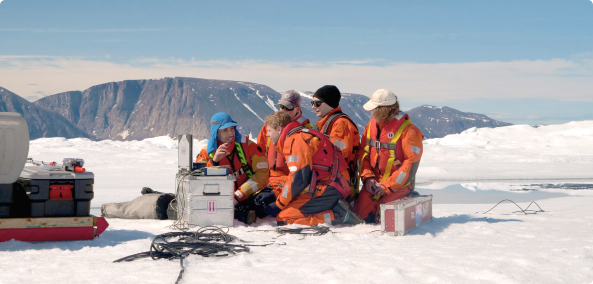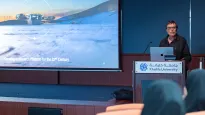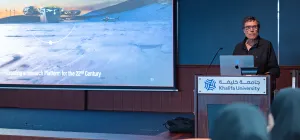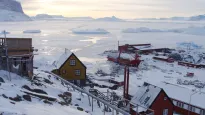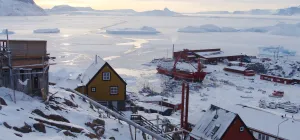IPF contributes to EU4Oceans Ocean Literacy Workshop
On Tuesday, April 5th the International Polar Foundation and the Network of European Blue Schools offered a special workshop for teachers and educators to present an overview of existing Arctic Ocean-related education materials and practices in schools.
The workshop was part of the "Let's Listen to the Arctic Ocean" series, a group of of virtual ocean literacy events the EU4Ocean Coalition organised that took place between April 5th and 8th, with the support of the European Commission's Directorate-General for Maritime Affairs and Fisheries (DG MARE).
After Evy Copejans from the Network of European Blue Schools introduced the workshop, Mieke Sterken, IPF's Education and Outreach Coordinator, opened the workshop with an interactive icebreaker that allowed participants from all over Europe to get to know one another by sharing their location, the kind of students and courses they taught, how they perceived the Arctic, and what they would consider to be good educational resources.
Following this, guest speaker Dr. Lars Demant-Poort from the Greenland Institute for Natural Sciences offered valuable insights to participants about why educators and European Youth should be aware about what's happening in the Arctic, and why processes of climate warming on land cannot be ignored when studying changes in the Arctic Ocean.
To round out the workshop, Mieke presented a number of educational tools teachers can make use of to plan their lessons about the Arctic, including materials from the INTAROS, MOSAIC, and EDU-ARCTIC2 projects, as well as IPF's own EducaPoles website, which contains several ready-made educational packages, and DIY-resources to compliment their lessons with contemporary GIS-based data or citizen science initiatives. The participants in the workshop were very appreciative to learn about the large number of tools available to support their lessons in the classroom.
On Friday, April 9th, Mieke summarized the outcomes of the education workshop during an online EU4Oceans closing session, where all workshop conveners came together to share their experiences and insights and answer questions from the public.
A commitment to educating the next generation
This workshop is just part of IPF’s extensive education and outreach work.
During the 2021-22 season, Henri Robert, IPF Science Liaison Officer and the Deputy Station Manager at the Princess Elisabeth Antarctica research station, and Johnny Gaelens, the PEA Station's Chief Engineer, held regular interactive online lessons with schools from Belgium and around the world. The IPF has offered online lessons with classrooms from the world's first zero-emission polar research station since it became operational during the 2008-09 season.
Since January, IPF Education and Outreach Coordinator Mieke Sterken has been visiting schools (primary, secondary, and college) throughout Belgium to give in-person lessons about the Polar Regions within the framework of a new education and outreach policy which included developing new educational resources. She will visit more schools in the coming months in order to test different educational ideas and formats.
If you're interested to collaborate with IPF or book an in-person or online lesson, you may contact us at education@polarfoundation.org
Download